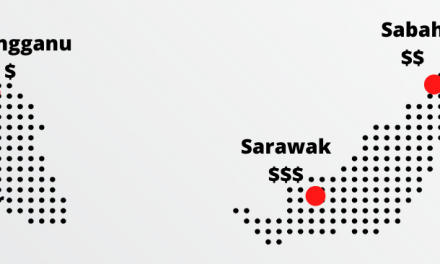JUNE 19 | The recent revelation on social media concerning yet another sexual harassment at workplace invites enormous concerns for a safer and more conducive working environment for our employees’ well-being.
Unsurprisingly, sexual harassment at workplace is rife and it is usually under-reported. We may even find out that similar incidents we have heard so far are just the tip of the iceberg.
Taboo for victims to confront
This could be potentially due to the lack of well-structured and victim-sensitive policies and mechanisms to address sexual harassment in workplace which forces victims to suffer in silence. The cost of speaking out is too overwhelming to handle without an effective regulatory system in place. Victims have little choice and they are pushed to hide their experiences.
In 1999, the Ministry of Human Resources has adopted the Code of Practice on the Prevention and Eradication of Sexual Harassment in Workplace (“Code”) to provide practical guidance in protecting victims of workplace sexual harassment.
The Code lays down the requirements of a comprehensive in-house mechanism and the necessity for a complaint or grievance procedure to combat the issue.
“Sexual harassment” is defined widely under the Code. However, the Code remains a guideline and has no force of law. Hence, obligation is not imposed upon employers to enforce the Code.
The laws
The principle provision governing sexual harassment under the Malaysian Penal Code is Section 509, which criminalises offences which insult the modesty of any person. Word, gestures or objects which are seen to intrude upon the privacy of a person will also be covered under the section.
In a landmark decision in 2016, the Federal Court decided against the sexual harassment perpetrator under the tort of sexual harassment which the court awarded RM100,000 general damages and RM20,000 aggravated and exemplary damages to the victim.
This case marks the recognition of the tort of sexual harassment under the Malaysian law in allowing victims to claim for civil remedies.
Under the Employment Act 1955 (“EA 1955”), sexual harassment is defined as “any unwanted conduct of a sexual nature, whether verbal, non-verbal, visual, gestural or physical, directed at a person which is offensive or humiliating or is a threat to his well-being, arising out of and in the course of his employment.”
Essentially, the EA 1955 makes it a statutory obligation for an employer to enquire into a complaint of sexual harassment by an employee, within 30 days upon receipt of such complaint.
Tackling workplace sexual harassment
The Malaysian legal system offers limited recourse for sexual harassment, be it at the criminal, labour or administrative level. To begin with, there is no particular legislation in Malaysia that is tailored specifically to eliminate workplace sexual harassment despite the continuous calls for better protection.
The Malaysian Penal Code does not specifically define sexual harassment. A detailed definition is necessary to ensure that it catches all forms of sexual harassment conducts. To further protect the victims, Penal Code should criminalise conduct which intentionally causes harassment, distress or alarm.
Sexual harassment does not happen in board daylight. To validate criminal liability of the perpetrator under the Penal Code, the victims bear the heavy onus to satisfy beyond reasonable doubt under circumstances where evidence is usually irretrievable.
The prevailing laws do not require employers to have a written policy against sexual harassment in place. The prevailing laws also do not specify the proper procedure to handle complaints of sexual harassment.
Hence, there will be no assurance as to the adherence towards natural justice during complaint investigation. Employers are given free rein to dictate the method of investigation and the procedure to handle the complaints.
The law should be amended to make employers vicariously liable for their inaction to address the employee’s complaints of sexual harassment, in order to ensure cooperation of employer in handling sexual harassment complaints.
Recognising these inadequacies, a model sexual harassment policy and grievance procedure are crucial and must be formulated as a mandatory policy to be implemented in every workplace. This enables any conduct acting against such policy or procedure to be considered as a misconduct which warrants disciplinary actions, including dismissal, by the employer.
In such circumstances, the standard of proof required to be satisfied by employers is on the balance of probabilities that such dismissal is with just cause or excuse.
As this issue garnered increasing attention from the public, the policymakers must be quick to formulate a proper law to combat sexual harassment in the workplace. The government’s failure to act may result in more employees suffering in silence.
Act upon it or be prepared to embrace the “new normal” of workplace sexual harassment.
* Leonard Yeoh is a partner and Pua Jun Wen a legal associate with legal firm Tay & Partners.
** This is the personal opinion of the writer or organisation and does not necessarily represent the views of Malay Mail.









